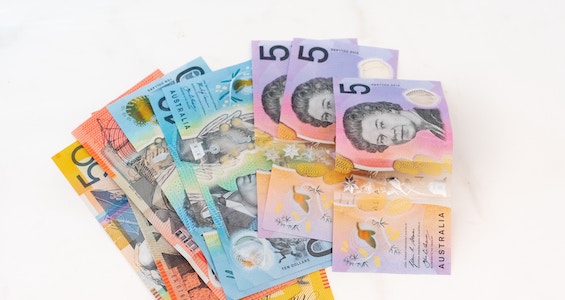How to save and budget
Finding it hard to save money or stick to a budget? Working out a realistic budget is a great way to take control of your finances. Although it may seem like a chore, it’s an important part of managing your money.
The benefits of budgeting
A budget shows you how much money you’re earning, how much you’re spending, and how much you’re saving.
While it can be tempting to put it off, creating a realistic budget can help you hit your savings goals faster.
How to work out your income
For most of us, this is a matter of checking our payslip or salary credit and seeing what we get (after tax and super).
It’s trickier if you’re a contractor or self-employed, or if your income varies wildly from month to month. Use your last tax return and work out your weekly net income (after business expenses, GST and PAYG).
Do you have any other sources of income – interest from investments, government contributions or child support payments? Work out what they average week to week, then add this in too.
Like to budget but think you’re too young?
It’s never too soon to start budgeting and saving, no matter what stage of life you’re at. Good savings habits formed young are a great way to set you up for later in life and setting up a bank account is an important first step to keep you on track.
Your budget checklist
It can be easy to underestimate how much you spend on a day-to-day basis. But to create a realistic budget, it’s important to find out how much you’re spending, and on what.
Firstly, take a good hard look at your bank statements. Go back over the past two or three months and make a note of everything you’ve paid for.
Remember there are some big costs that only come up every year, or less, like car insurance and registration.
It’s helpful if you group things into categories. Let’s start with the basics: food, clothing, housing, transport, communication and insurance.
Housing expenses
The biggest expense you’ll face is probably your rent or mortgage. If you own your own place, you’ll also be hit up for home maintenance (repairs), home and contents insurance, rates, and utilities (e.g. gas, electricity, water).
Food and drink
This includes your groceries, but also your takeaway lunches and evening feasts out. Don’t forget those coffees and other incidental snacks – it all adds up.
Clothing
You might want to divide this category into your work clothes and your fun clothes to sort out what’s necessary and what’s not. If shoes are your thing, you’ll need to account for these too.
Transport
The costs of running a car can easily add up. Fuel’s just the start—there’s parking, repairs, general maintenance and insurance.
A good budget also considers future expenses like replacing your car at some point.
Public transport’s often cheaper, and this also should be factored in.
Communication
Consider the bills for your mobile, internet and (if you still have one) landline charges.
Insurance
If you have any sort of insurance – health, life, car, travel, home or perhaps income – you’ll be paying premiums. They may be yearly or monthly, but make sure they’re factored into your final budget.
Health and wellbeing
Although these costs might be occasional, your budget should take into account things like medical costs such as going to the doctor or dentist or optometrist.
In this section you can also include lifestyle costs like gym membership and sports club fees.
Life and leisure
Think about all those incidental costs that pop up over the year: magazine and TV streaming subscriptions, weekends away, movies, Christmas and birthday gifts.
Replacement costs
Every now and then, you’ll unfortunately have to replace items like the fridge, washing machine, TV, or lounge suite.
Replacing these can make a significant dent in your savings if you don’t have a plan in place to prepare for them ahead of time.
Debts
These include personal loans, credit cards, store cards and other loans, and the interest that comes with them.
Miscellaneous
This is where you’ll budget for everything else that doesn’t fit within the categories you’ve laid out. These might include pet costs, uni or office fees, childcare, and beauty costs.
A budget planner will do a lot of the sums for you – and average out those tricky occasional costs to a weekly number.
The government’s MoneySmart website also has a comprehensive section on budgeting that’s worth a look.
Now to the fun part
Once you’ve created a solid budget, the job’s only half done. Now it’s time to keep it together. We have some other handy tips that will help you stick to your budget.
Please contact us on |PHONE| if you need further assistance on this topic.
Reproduced with permission of National Australia Bank (‘NAB’). This article was original published at https://www.nab.com.au/personal/life-moments/manage-money/budget-saving/budgeting-101
National Australia Bank Limited. ABN 12 004 044 937 AFSL and Australian Credit Licence 230686. The information contained in this article is intended to be of a general nature only. Any advice contained in this article has been prepared without taking into account your objectives, financial situation or needs. Before acting on any advice on this website, NAB recommends that you consider whether it is appropriate for your circumstances.
© 2020 National Australia Bank Limited (“NAB”). All rights reserved.
Important: Any information provided by the author detailed above is separate and external to our business and our Licensee. Neither our business nor our Licensee takes any responsibility for any action or any service provided by the author. Any links have been provided with permission for information purposes only and will take you to external websites, which are not connected to our company in any way. Note: Our company does not endorse and is not responsible for the accuracy of the contents/information contained within the linked site(s) accessible from this page.

